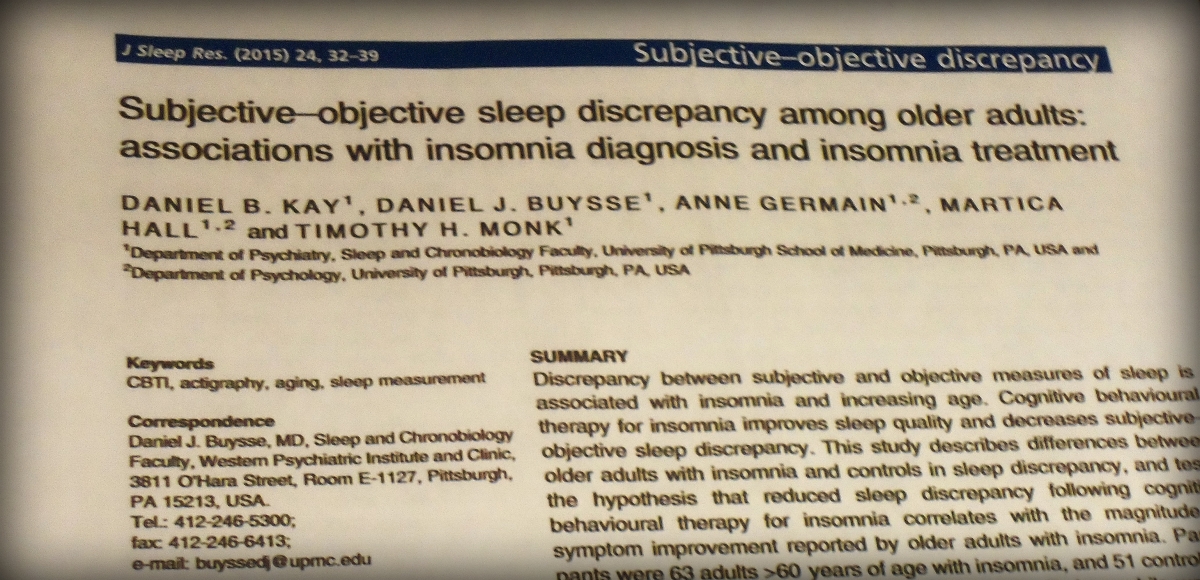Hot Publication - Kay et al.

Subjective-objective sleep discrepancy among older adults: associations with insomnia diagnosis and insomnia treatment
Kay DB, Buysse DJ, Germain A, Hall M and Monk TH
Journal of Sleep Research, 24:32-39, 2015
Discrepancy between subjective and objective measures of sleep is associated with insomnia and increasing age. Cognitive behavioral therapy for insomnia improves sleep quality and decreases subjective-objective sleep discrepancy.
Dr. Daniel Kay collaborated with faculty in the Department of Psychiatry sleep research program on a study to examine the differences between older adults with insomnia and controls in sleep discrepancy, and to test the hypothesis that reduced sleep discrepancy following cognitive behavioral therapy for insomnia correlates with the magnitude of symptom improvement reported by older adults with insomnia.
Dr. Kay and his team recruited 63 adults over the age of 60 diagnosed with insomnia, and 51 controls. At baseline, participants completed sleep diaries for seven days while wearing wrist actigraphs. After receiving cognitive behavioral therapy for insomnia, insomnia patients repeated this sleep assessment. The investigators calculated sleep discrepancy variables by subtracting actigraphic sleep onset latency and wake after sleep onset from respective self-reported estimates, pre- and post-treatment. Mean level and night-to-night variability in sleep discrepancy were investigated and baseline sleep discrepancies were compared between groups. The team also examined pre-post-treatment changes in Insomnia Severity Index scores and sleep discrepancy variables within older adults with insomnia.
Findings from this study revealed that sleep discrepancy was significantly greater and more variable across nights in older adults with insomnia than controls. Dr. Kay and his colleagues also found that treatment with cognitive behavioral therapy for insomnia was associated with significant reduction in the Insomnia Severity Index score that correlated with changes in mean level and night-to-night variability in wake after sleep onset discrepancy. Sleep discrepancy appears to be a central feature of insomnia. Further study of sleep discrepancy patterns may guide more targeted studies on pathophysiology and treatment.
Contributors:
Daniel Kay, PhD, Daniel J. Buysse, MD, Anne Germain, PhD, Martica Hall, PhD and Timothy Monk, DSc, PhD (Department of Psychiatry, University of Pittsburgh)
This article appeared in the Journal of Sleep Research. Click here to view the abstract.
